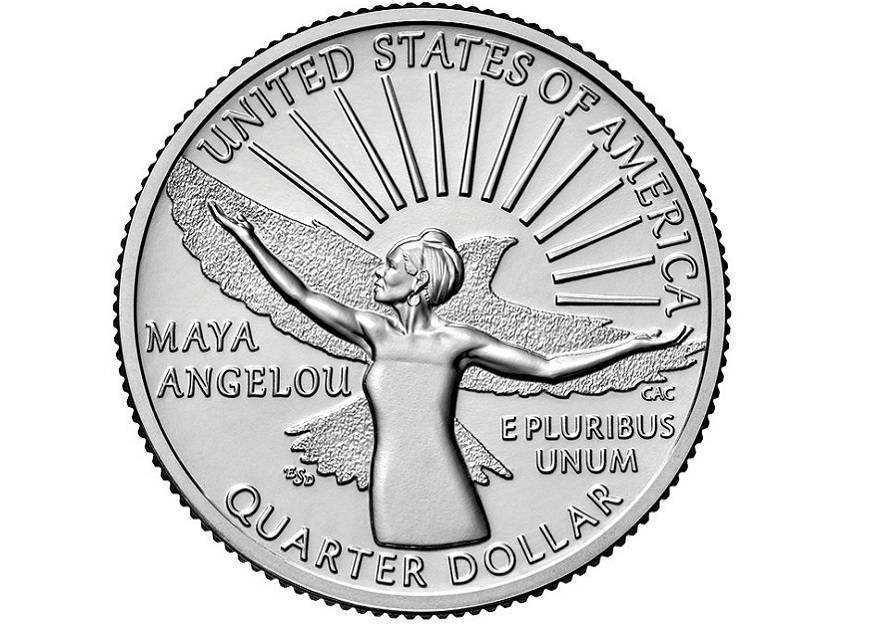Maya Angelou, who passed away in 2014, is remembered for her critically acclaimed “I Know Why the Caged Bird Sings” autobiography. The civil rights activist also made history during Bill Clinton’s inauguration in 1993 when she became the first Black as well as the first female to recite a poem at the swearing-in ceremony.
The new quarter depicts the poet with her arms lifted. Behind her is a flying bird and rising sun, which are “inspired by her poetry and symbolic of the way she lived”, the U.S. treasury department said. The front side of the quarter shows the traditional bust of the country’s first president, George Washington.
The U.S. Mint plans to issue 20 more quarters over the next four years that will feature other American women who played iconic roles in the country’s history.
The Mint had earlier said that the women who will be featured on the coins will be shortlisted from “a wide spectrum of fields including, but not limited to, suffrage, civil rights, abolition, government, humanities, science, space, and the arts.” They will also come from “ethnically, racially, and geographically diverse backgrounds.”
Public law, however, stipulates that people who are featured on coins are not supposed to be alive – meaning all the women who are going to be honored on the program must be deceased.
Before her death eight years ago, Angelou had grown up in Arkansas and had subsequently established a reputation in literature in 1970 with I Know Why the Caged Bird Sings, a memoir that touched on racism and the abuse she faced in childhood.
From nightclub dancing, Angelou started a career in the arts and for 60 years became one of the most influential individuals in modern literature. She wrote over 30 books, including essays and poetry, as well as seven autobiographies. The renowned African-American poet’s audio recording of the On the Pulse of Morning poem won the 1994 Grammy Award in the “Best Spoken Word” category, widening her reach and appeal. On The Pulse Of Morning is a 106 line poem with themes such as responsibility, change, inclusion, and hope for a country after some dark moments.
And before becoming a prolific orator, poet, author, and civil rights activist, Angelou shattered barriers working as San Francisco’s first Black female streetcar conductor in the 1940s.


1 comment
[…] Black Excellence: Maya Angelou Is Now The First Black Woman On U.S. Quarter […]